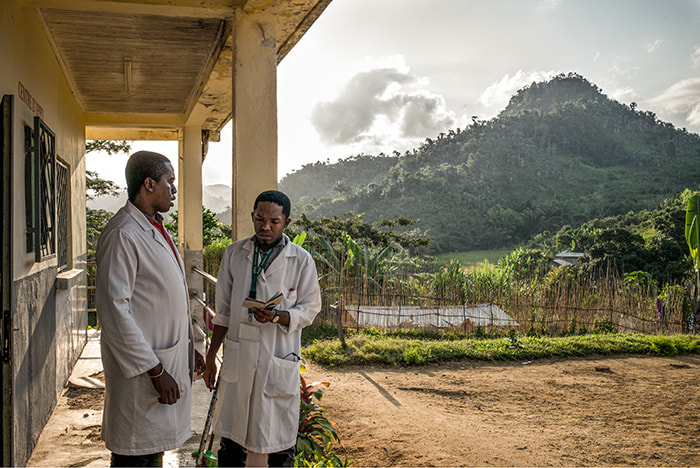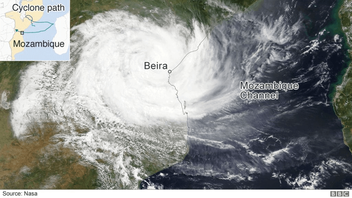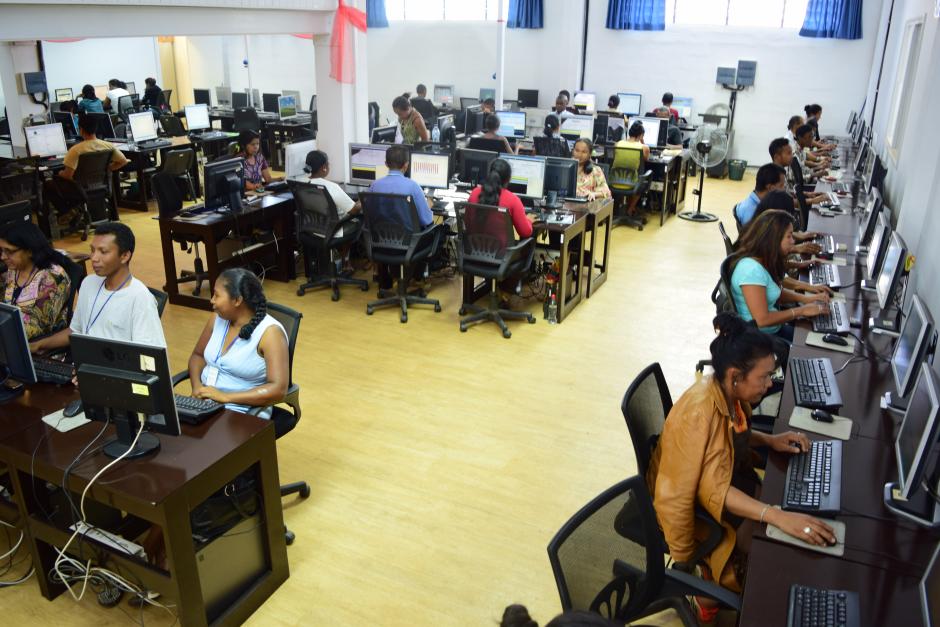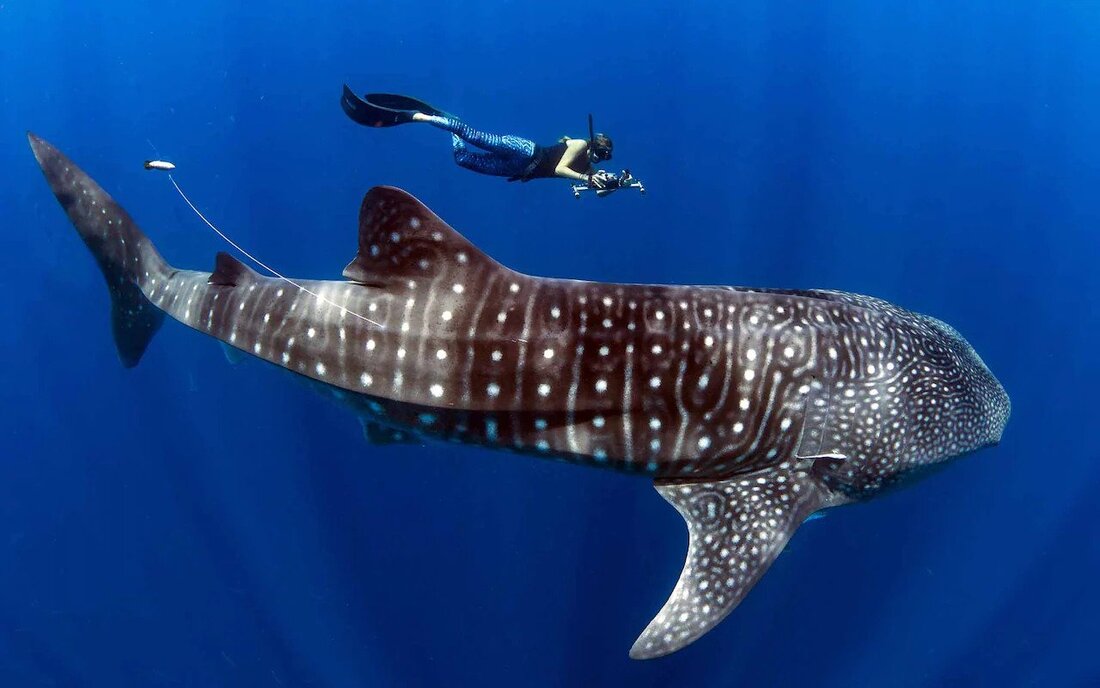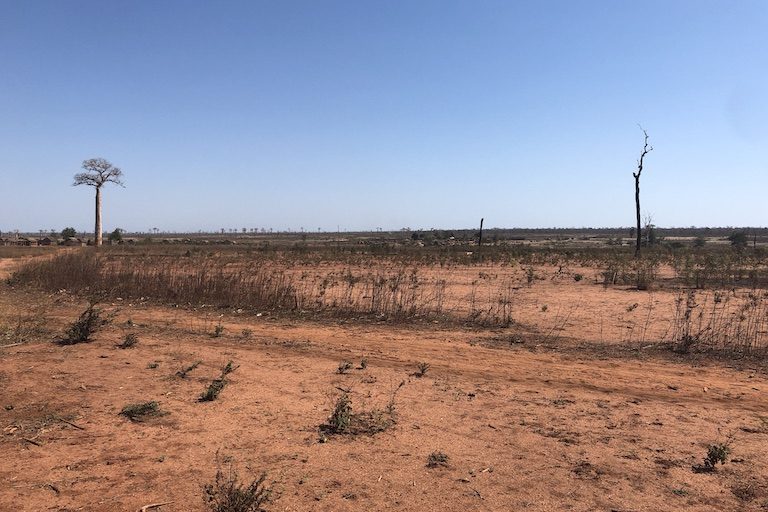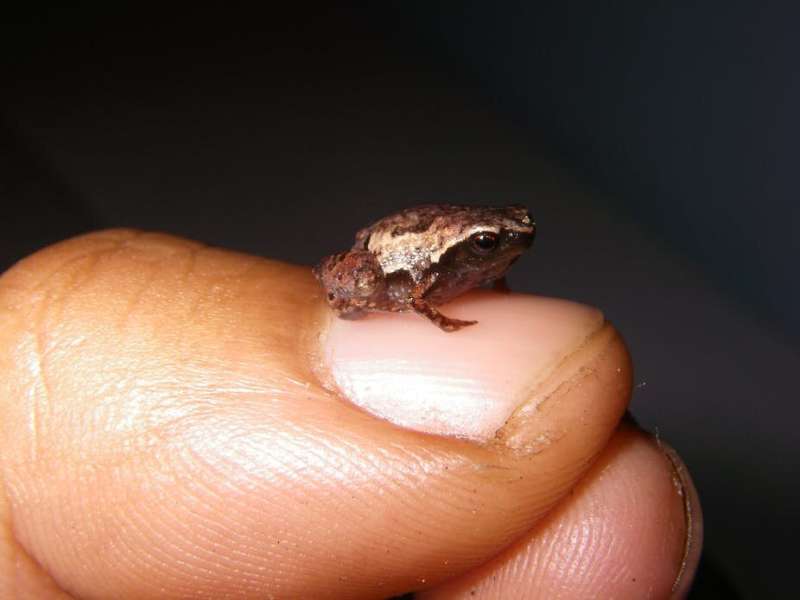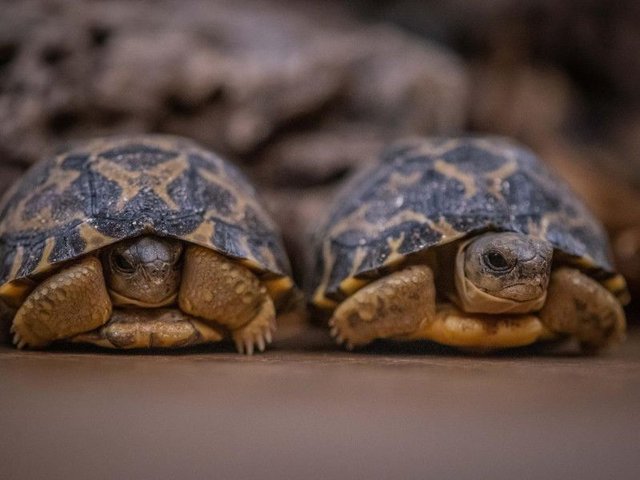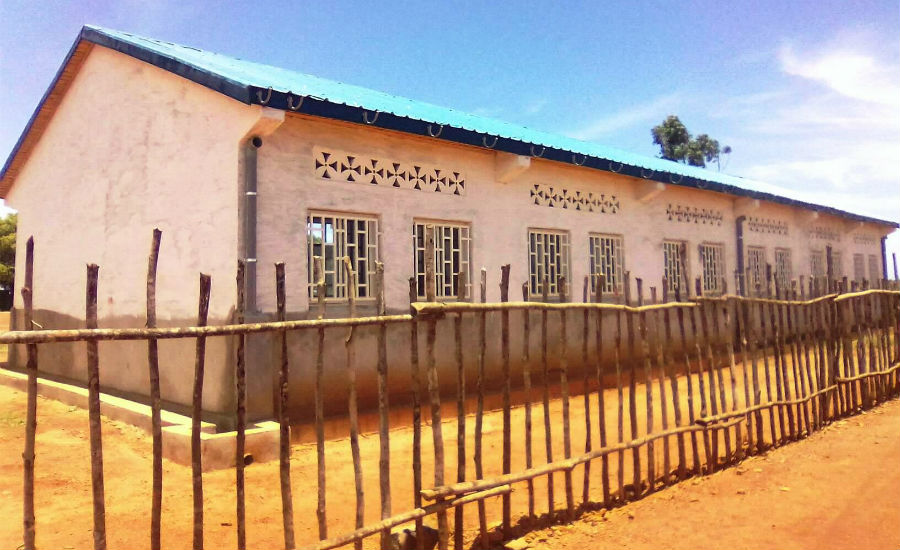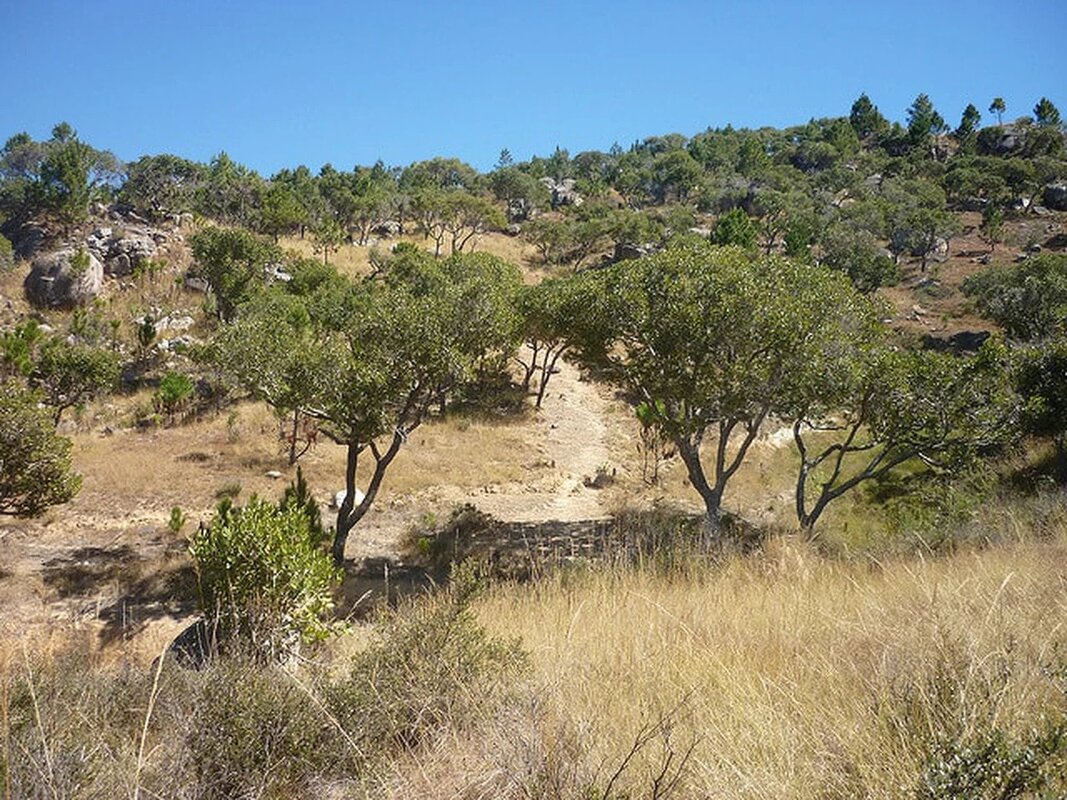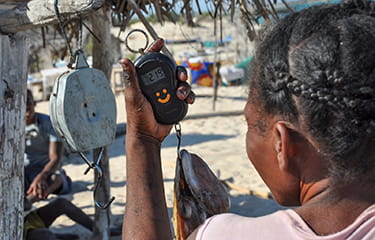Anglo-Malagasy Society Newsletter 103: March 2019 |
| ||
Society activities
The first Society meeting of 2019 was on Wednesday 13th March when there was a lively debate on the mining projects in Madagascar and whether they could contribute to sustainable development in the country. The panel under moderator Paul Melly from Chatham House were Gregg Smith, a research analyst at the Institute of Development Studies, Vola Parker (author of Rio Tinto and Madagascar - is it equitable?), John Ffooks a lawyer specialising in natural resources, and Yvonne Orengo, director of the Andrew Lees Trust.
The next events will be on the evening of Wednesday 26th June, which will be an opportunity to celebrate Independence Day, and then a daytime event on Saturday 19th October.
Details of the events will be on our website at www.anglo-malagasysociety.co.uk and on Facebook. The website has a summary of some of the previous talks for those unable to attend, together with much other useful information. This includes directions to the venue for our meetings, which is the Upper Vestry Hall of St George’s Church, Bloomsbury, London WC1A 2HR, which is two minutes’ walk from the British Museum.
The next newsletter will be published in June 2019. Please send any material for inclusion as well as any changes in your contact details to the editor Julian Cooke, whose e-mail address is [email protected].
The newsletter has now been published in 103 editions over more than forty years. As a Society we had an almost complete archive of the editions back to 1989 (issue 22) and then the bonus of finding earlier issues through Winifred White and Theresa Haine. We are looking for help in finding the missing issues, which are numbers 1, 3, 4, 7–11, 13–21, 58–60, 65 and 66 which stretch over the years between 1977 and 2009. If you can help please contact Daniel Austin, and we plan to provide an insight into the fascinating earlier editions in a future newsletter.
The new address of the Embassy of Madagascar is 1 Knightsbridge Green, London, SW1X 7NE.
The next events will be on the evening of Wednesday 26th June, which will be an opportunity to celebrate Independence Day, and then a daytime event on Saturday 19th October.
Details of the events will be on our website at www.anglo-malagasysociety.co.uk and on Facebook. The website has a summary of some of the previous talks for those unable to attend, together with much other useful information. This includes directions to the venue for our meetings, which is the Upper Vestry Hall of St George’s Church, Bloomsbury, London WC1A 2HR, which is two minutes’ walk from the British Museum.
The next newsletter will be published in June 2019. Please send any material for inclusion as well as any changes in your contact details to the editor Julian Cooke, whose e-mail address is [email protected].
The newsletter has now been published in 103 editions over more than forty years. As a Society we had an almost complete archive of the editions back to 1989 (issue 22) and then the bonus of finding earlier issues through Winifred White and Theresa Haine. We are looking for help in finding the missing issues, which are numbers 1, 3, 4, 7–11, 13–21, 58–60, 65 and 66 which stretch over the years between 1977 and 2009. If you can help please contact Daniel Austin, and we plan to provide an insight into the fascinating earlier editions in a future newsletter.
The new address of the Embassy of Madagascar is 1 Knightsbridge Green, London, SW1X 7NE.
Politics in Madagascar
Madagascar has held its presidential election which was won by Andry Rajoelina who defeated Marc Ravalomanana in the second round on 19th December; the outgoing president Hery Rajaonarimampianina came a distant third in the first round in November. Campaigning has started for legislative elections at end May.
After the initial results were announced both candidates claimed fraud and called for the other to be disqualified. Ravalomanana’s camp lodged 214 and Rajoelina 73 of the 305 complaints in total that the Haute Cour Consitutionelle (HCC) considered. There were concerns over the unusually high turn-out in a number of districts and a range of alleged electoral fraud.
Ravalomanana’s supporters held a series of protest rallies in the Place 13 Mai in the capital; the first passed peacefully but in the next on 2nd January the police used tear gas to disperse the crowd. The protests continued on a daily basis in spite of a ban and there were further clashes on the fifth day. The four ministers who were members of Ravalomanana’s TIM party condemned the heavy-handed approach of the authorities while the magistrates’ union also expressed concern. The government itself charged six of the leaders of the protest with posing a threat to internal security while various parties called for the populace to heed the results of the poll once confirmed by the HCC, which felt obliged to assert its role as acting in the service of the nation.
On 8th January the HCC confirmed the results of the election with Rajoelina having won 55.66% of the vote against Ravalomanana’s 44.34%. Rajoelina had polled well across the country, save in Antsirabe, and had won in three of the six districts of the capital, while Ravalomanana’s support had been mostly in the central highlands. The HCC rejected most of the complaints and the result was received in an air of calm; Ravalomanana congratulated his rival who in turn said that it had been a good contest. The civil rights body, SeFaFi, condemned the incompetence, corruption, demagoguery and lies that had marked the polls. The fall in the participation rate to 48% was also a concern. In a television address Ravalomanana repeated his congratulations and said he wished Rajoelina well in dealing with the task ahead, saying that reconciliation was vital to secure development in the country. Ravalomanana was seen as having reached an accord with Rajoelina under pressure from the international community and in return for concessions over his business empire.
On 17th January the ambassador for the EU, Giovanni di Girolamo, said the election had been a success in spite of certain shortcomings and had been a step forward for the country. Rajoelina was invested as president on Saturday 19th January in a ceremony at the Mahamasina stadium, which passed peacefully. It was attended by representatives of some thirty-five countries or international bodies including the presidents of Comoros, Ethiopia, Ghana, Guinea, Namibia and Zambia; the former president Nicholas Sarkozy was also present if not necessarily to represent France and perhaps just the Accor hotel group for which he now worked.
In a reversal of the roles five years previously and in the presence of Rivo Rakotovao as interim president, Rajaonarimampianina handed over the official seals of office to Rajoelina, whose first formal policy would be the refurbishment of the presidential palace at Iavoloha. In his first speech as the new president Rajoelina called for a rapid pace of development, with self-sufficiency in food and increased industrial production. He said he would replace the heads of each of the country’s twenty-three regions with a new governor as part of a planned move to decentralisation. As part of this policy he also announced plans for a new city to house the country’s institutions and embassies under a project called Tanamasoandro. Other policies he enumerated included further electrification in rural areas using solar power and a renewal of his policy under the previous Transition of selling subsidised imported rice. All this would be part of Rajoelina’s Initiative pour l’Emergence de Madagascar.
Rajoelina confirmed Christian Ntsay in his role as prime minister, as expected since he had proposed him in June 2018 and a move that reflected the support Rajoelina had received in the polls in Antsirananana. The president dismissed fifty-one special advisers or heads of mission appointed by his predecessor as well as the officials in the office of the president.
Rajoelina’s new government comprised a reduced number of twenty-two ministers of whom five were women. It included no representatives of rival parties and only two ministers stayed in place, Tiana Razafimahefa at the Ministry of the Interior and Irmah Nahirimamy at the Ministry of Population. Richard Randriamandrato, who had a role in the previous government in liaising with financial partners, became minister of a combined portfolio of Economy, Finance and the Budget. The wealthy media mogul Naina Andriantsitoahina was made Minister of Foreign Affairs and Jacques Randrianasolo Minster of Justice. Alexandre Georget of the Green Party became the new Minister of the Environment. The only notable continuation from the previous Transition regime came in the appointment of Richard Ravalomanana as Minister for the Gendarmerie. Rajoelina said that the reduction from thirty ministers was intended to reduce public spending and to set an example; he said he expected prompt results of the team whose work would be evaluated after six months and whose success would be judged after a year.
One issue was that new legislative elections would not be held before the term of the current deputies expired on 5th February. In a move that was seen as a possible concern if quite legal, Rajoelina announced that he would govern by ordinance ahead of the next session starting from 5th May of the National Assembly. He also said that as well as the presidential palace he would restore the Queen’s Palace in time for the sixtieth anniversary of Madagascar’s independence in June 2020; it had been destroyed by fire in 1995 and its previous restoration had faltered in 2008.
In early February the electoral commission CENI proposed that rather than the original date it proposed for March that the legislative elections be held on 27th May, which the government approved. The National Assembly approved the new powers for Rajoelina by a majority of 95 out of the 102 voting. On 5th February the Senate also gave its approval the measures, this time unanimously; the leader of HVM, the majority party that backed Rajaonarimampianina, said that they were ready to give the new president a chance while perhaps being mindful of his plan to abolish the upper house. The HCC itself confirmed the new status the following week, with Rajoelina able to govern as proposed until the first session of the Assembly due in early July. The HCC also confirmed that the mandate of each senator ran for five years until end 2020 so that Rajoelina would not be able to act before then to nominate his allotted 21 members.
Rajoelina set out a detailed programme with fourteen priorities. In the first, peace and security, he proposed setting up special forces and providing helicopters as well as banning the export of cattle and monitoring their movements; Amnesty International called on him to respect the law in dealing with bandits. The second objective was providing energy and water for all, including the doubling of energy production and the third the fight against corruption. Other policies covered education, health and construction as well as self-sufficiency, industrialisation, tourism and decent jobs for all.
On the international front Rajoelina attended the 32nd summit of the African Union in Addis Ababa and spoke of the need for Africa to preserve more of its natural resources. His government dismissed nine ambassadors and two consuls, some of whom had only been recently appointed.
In February Hugues Ratsiferana was condemned to a year in prison and a fine of 5m ariary for taking government goods; he had been a special adviser to the former president and had been involved in the contentious fisheries agreement with Chinese firms. The government also cracked down on corruption in the police, especially traffic officers. There were high profile arrests of two men implicated in rosewood smuggling, although to sceptics this was part of a programme targeting the former president.
The electoral list was due to be revised before the next elections, although CENI had struggled to engage those due to be added: by mid-February, just before the lists closed, there had only been an increase of 0.4% in the numbers. CENI invited 192 heads of the fokontany or local districts to discuss what could be done, including keeping their offices open continuously for the last days of the programme, although there was no extra incentive as the modest 10,000 ariary CENI gave them stayed. The elections would be the first to be based on a single majority vote rather than proportional representation, although lists with a minimum of 300,000 voters would be in place for the thirty constituencies that returned two members.
In the end the electoral list, which closed on 15th February, surpassed 10m voters for the first time with a total of 10,154,639 electors if only 1.5% more than in 2018, after CENI added 666,599 to the previous record and removed 415,875 a number of which were duplicates. The list of candidates for the 151 seats when that too closed was lower in previous years at 851 compared to 2,053 in 2013, with just 15% of them women; 59 were then disbarred for various reasons. Not all of the 125 registered parties put forward candidates, with 85 doing so, while the larger parties did not stand in all the regions; this included Ravalomanana’s TIM and the new group Isika rehetra distrika miaraka amin’ny prezida Andry Rajoelina (IRD) supporting the president.
In early March a new ambassador for the USA, Michael Pelletier, took up his position. Rajoelina visited Mauritius at a commemoration of the 51st anniversary of its independence; he was accompanied by half a dozen ministers and a number of businessmen. The presidents of the two countries pledged to fight corruption and drug trafficking in the region and signed three co-operation agreements on higher education, judicial aid and trafficking. Rajoelina also said that the success of Mauritius in securing the return of sovereignty of the Chagos Islands augured well for Madagascar’s own challenge for the Iles Eparses or Scattered Islands. When Rajoelina later visited Kenya he met the French president Emmanuel Macron at the UN’s One Planet summit, although it was not clear that the islands were on the agenda.
In mid-March Rajoelina was in Toamasina to attend the delivery of 15,000 tonnes of rice imported by the new government in line with its electoral promise or Vary mora; he took the opportunity to confirm plans for a new development to make an equivalent of Miami Beach in the town.
The reconciliation commission, the CFM, announced that four of thirty-six applicants had been granted an amnesty: Tantely Andrianarivo and Fredo Betsimifira, who had been prime minister and minister of culture under Didier Ratsiraka; a former deputy, Boniface Zakahely; and José Georges Tahaka, a technical adviser to former prime minster Pierrot Rajaonarivelo. Meanwhile Pety Rakotoniaina, a former deputy and mayor of Fianarantsoa, was sentenced to a year in prison on charges of endangering public order, inciting hate against the government and attempting a coup d’état.
On 27th March the Vatican announced that Pope Francis would visit Madagascar, Mauritius and Mozambique from 4th to 10th September.
After the initial results were announced both candidates claimed fraud and called for the other to be disqualified. Ravalomanana’s camp lodged 214 and Rajoelina 73 of the 305 complaints in total that the Haute Cour Consitutionelle (HCC) considered. There were concerns over the unusually high turn-out in a number of districts and a range of alleged electoral fraud.
Ravalomanana’s supporters held a series of protest rallies in the Place 13 Mai in the capital; the first passed peacefully but in the next on 2nd January the police used tear gas to disperse the crowd. The protests continued on a daily basis in spite of a ban and there were further clashes on the fifth day. The four ministers who were members of Ravalomanana’s TIM party condemned the heavy-handed approach of the authorities while the magistrates’ union also expressed concern. The government itself charged six of the leaders of the protest with posing a threat to internal security while various parties called for the populace to heed the results of the poll once confirmed by the HCC, which felt obliged to assert its role as acting in the service of the nation.
On 8th January the HCC confirmed the results of the election with Rajoelina having won 55.66% of the vote against Ravalomanana’s 44.34%. Rajoelina had polled well across the country, save in Antsirabe, and had won in three of the six districts of the capital, while Ravalomanana’s support had been mostly in the central highlands. The HCC rejected most of the complaints and the result was received in an air of calm; Ravalomanana congratulated his rival who in turn said that it had been a good contest. The civil rights body, SeFaFi, condemned the incompetence, corruption, demagoguery and lies that had marked the polls. The fall in the participation rate to 48% was also a concern. In a television address Ravalomanana repeated his congratulations and said he wished Rajoelina well in dealing with the task ahead, saying that reconciliation was vital to secure development in the country. Ravalomanana was seen as having reached an accord with Rajoelina under pressure from the international community and in return for concessions over his business empire.
On 17th January the ambassador for the EU, Giovanni di Girolamo, said the election had been a success in spite of certain shortcomings and had been a step forward for the country. Rajoelina was invested as president on Saturday 19th January in a ceremony at the Mahamasina stadium, which passed peacefully. It was attended by representatives of some thirty-five countries or international bodies including the presidents of Comoros, Ethiopia, Ghana, Guinea, Namibia and Zambia; the former president Nicholas Sarkozy was also present if not necessarily to represent France and perhaps just the Accor hotel group for which he now worked.
In a reversal of the roles five years previously and in the presence of Rivo Rakotovao as interim president, Rajaonarimampianina handed over the official seals of office to Rajoelina, whose first formal policy would be the refurbishment of the presidential palace at Iavoloha. In his first speech as the new president Rajoelina called for a rapid pace of development, with self-sufficiency in food and increased industrial production. He said he would replace the heads of each of the country’s twenty-three regions with a new governor as part of a planned move to decentralisation. As part of this policy he also announced plans for a new city to house the country’s institutions and embassies under a project called Tanamasoandro. Other policies he enumerated included further electrification in rural areas using solar power and a renewal of his policy under the previous Transition of selling subsidised imported rice. All this would be part of Rajoelina’s Initiative pour l’Emergence de Madagascar.
Rajoelina confirmed Christian Ntsay in his role as prime minister, as expected since he had proposed him in June 2018 and a move that reflected the support Rajoelina had received in the polls in Antsirananana. The president dismissed fifty-one special advisers or heads of mission appointed by his predecessor as well as the officials in the office of the president.
Rajoelina’s new government comprised a reduced number of twenty-two ministers of whom five were women. It included no representatives of rival parties and only two ministers stayed in place, Tiana Razafimahefa at the Ministry of the Interior and Irmah Nahirimamy at the Ministry of Population. Richard Randriamandrato, who had a role in the previous government in liaising with financial partners, became minister of a combined portfolio of Economy, Finance and the Budget. The wealthy media mogul Naina Andriantsitoahina was made Minister of Foreign Affairs and Jacques Randrianasolo Minster of Justice. Alexandre Georget of the Green Party became the new Minister of the Environment. The only notable continuation from the previous Transition regime came in the appointment of Richard Ravalomanana as Minister for the Gendarmerie. Rajoelina said that the reduction from thirty ministers was intended to reduce public spending and to set an example; he said he expected prompt results of the team whose work would be evaluated after six months and whose success would be judged after a year.
One issue was that new legislative elections would not be held before the term of the current deputies expired on 5th February. In a move that was seen as a possible concern if quite legal, Rajoelina announced that he would govern by ordinance ahead of the next session starting from 5th May of the National Assembly. He also said that as well as the presidential palace he would restore the Queen’s Palace in time for the sixtieth anniversary of Madagascar’s independence in June 2020; it had been destroyed by fire in 1995 and its previous restoration had faltered in 2008.
In early February the electoral commission CENI proposed that rather than the original date it proposed for March that the legislative elections be held on 27th May, which the government approved. The National Assembly approved the new powers for Rajoelina by a majority of 95 out of the 102 voting. On 5th February the Senate also gave its approval the measures, this time unanimously; the leader of HVM, the majority party that backed Rajaonarimampianina, said that they were ready to give the new president a chance while perhaps being mindful of his plan to abolish the upper house. The HCC itself confirmed the new status the following week, with Rajoelina able to govern as proposed until the first session of the Assembly due in early July. The HCC also confirmed that the mandate of each senator ran for five years until end 2020 so that Rajoelina would not be able to act before then to nominate his allotted 21 members.
Rajoelina set out a detailed programme with fourteen priorities. In the first, peace and security, he proposed setting up special forces and providing helicopters as well as banning the export of cattle and monitoring their movements; Amnesty International called on him to respect the law in dealing with bandits. The second objective was providing energy and water for all, including the doubling of energy production and the third the fight against corruption. Other policies covered education, health and construction as well as self-sufficiency, industrialisation, tourism and decent jobs for all.
On the international front Rajoelina attended the 32nd summit of the African Union in Addis Ababa and spoke of the need for Africa to preserve more of its natural resources. His government dismissed nine ambassadors and two consuls, some of whom had only been recently appointed.
In February Hugues Ratsiferana was condemned to a year in prison and a fine of 5m ariary for taking government goods; he had been a special adviser to the former president and had been involved in the contentious fisheries agreement with Chinese firms. The government also cracked down on corruption in the police, especially traffic officers. There were high profile arrests of two men implicated in rosewood smuggling, although to sceptics this was part of a programme targeting the former president.
The electoral list was due to be revised before the next elections, although CENI had struggled to engage those due to be added: by mid-February, just before the lists closed, there had only been an increase of 0.4% in the numbers. CENI invited 192 heads of the fokontany or local districts to discuss what could be done, including keeping their offices open continuously for the last days of the programme, although there was no extra incentive as the modest 10,000 ariary CENI gave them stayed. The elections would be the first to be based on a single majority vote rather than proportional representation, although lists with a minimum of 300,000 voters would be in place for the thirty constituencies that returned two members.
In the end the electoral list, which closed on 15th February, surpassed 10m voters for the first time with a total of 10,154,639 electors if only 1.5% more than in 2018, after CENI added 666,599 to the previous record and removed 415,875 a number of which were duplicates. The list of candidates for the 151 seats when that too closed was lower in previous years at 851 compared to 2,053 in 2013, with just 15% of them women; 59 were then disbarred for various reasons. Not all of the 125 registered parties put forward candidates, with 85 doing so, while the larger parties did not stand in all the regions; this included Ravalomanana’s TIM and the new group Isika rehetra distrika miaraka amin’ny prezida Andry Rajoelina (IRD) supporting the president.
In early March a new ambassador for the USA, Michael Pelletier, took up his position. Rajoelina visited Mauritius at a commemoration of the 51st anniversary of its independence; he was accompanied by half a dozen ministers and a number of businessmen. The presidents of the two countries pledged to fight corruption and drug trafficking in the region and signed three co-operation agreements on higher education, judicial aid and trafficking. Rajoelina also said that the success of Mauritius in securing the return of sovereignty of the Chagos Islands augured well for Madagascar’s own challenge for the Iles Eparses or Scattered Islands. When Rajoelina later visited Kenya he met the French president Emmanuel Macron at the UN’s One Planet summit, although it was not clear that the islands were on the agenda.
In mid-March Rajoelina was in Toamasina to attend the delivery of 15,000 tonnes of rice imported by the new government in line with its electoral promise or Vary mora; he took the opportunity to confirm plans for a new development to make an equivalent of Miami Beach in the town.
The reconciliation commission, the CFM, announced that four of thirty-six applicants had been granted an amnesty: Tantely Andrianarivo and Fredo Betsimifira, who had been prime minister and minister of culture under Didier Ratsiraka; a former deputy, Boniface Zakahely; and José Georges Tahaka, a technical adviser to former prime minster Pierrot Rajaonarivelo. Meanwhile Pety Rakotoniaina, a former deputy and mayor of Fianarantsoa, was sentenced to a year in prison on charges of endangering public order, inciting hate against the government and attempting a coup d’état.
On 27th March the Vatican announced that Pope Francis would visit Madagascar, Mauritius and Mozambique from 4th to 10th September.
Economic and social matters
Finance and aid
Both the French government under Emmanuel Macron and the Chinese government said that they would continue strong relations with the new regime under Rajoelina. Madagascar is one of the countries (with Mauritius, the Seychelles and Zimbabwe) that signed a deal on 31st January for trade relations with the UK after it leaves the EU, when that arises.
In early February the EU said that the successful elections would allow it to commit to an aid package that would cover roads, infrastructure and rural development. That month it provided €4.7m to a number of civil society bodies. In mid-February the International Monetary Fund (IMF) reported favourably after its latest review, and said it anticipated another year of 5% growth. In March the IMF approved the release of $44m of credit intended to help reforms and to encourage other donors.
In March the African Development Bank offered $20m of financing to the Fihariana project to help to encourage young entrepreneurs. The World Bank announced finance of $150m to help to double the level of access to electricity in the country; $90m to help some 750,000 in the poorest households; and $90m to help in agriculture, if only in statistics, in line with an agreement signed in 2017.
In early February the EU said that the successful elections would allow it to commit to an aid package that would cover roads, infrastructure and rural development. That month it provided €4.7m to a number of civil society bodies. In mid-February the International Monetary Fund (IMF) reported favourably after its latest review, and said it anticipated another year of 5% growth. In March the IMF approved the release of $44m of credit intended to help reforms and to encourage other donors.
In March the African Development Bank offered $20m of financing to the Fihariana project to help to encourage young entrepreneurs. The World Bank announced finance of $150m to help to double the level of access to electricity in the country; $90m to help some 750,000 in the poorest households; and $90m to help in agriculture, if only in statistics, in line with an agreement signed in 2017.
Health
The latest outbreak of plague in Madagascar led to thirty-one deaths out of a limited 115 cases between August and February.
The country has suffered a serious outbreak of measles, a disease that has seen a resurgence worldwide. The Malagasy Ministry of Health calculated that between early October 2018 and March 2019 there had been 98,415 cases victims of whom 1,141 had died. The EU provided €500,000 towards a vaccination campaign for 1.2m children amid concerns that the shortage of vaccines had been a significant factor; there is a France 24 report. An article in March in The New Humanitarian ascribed the challenges on vaccination to affordability and accessibility rather than the hesitancy which might prevail elsewhere.
A study by Afrobarometer in February indicated that the number of health centres in the country had halved between 2008 and 2018, and that only 48% of the population had access to one.
The Ministry of Health started a project with the University of Antananarivo to fight against bilharzia, to which 92% of the population was said to be susceptible in nearly all regions of the country.
The country has suffered a serious outbreak of measles, a disease that has seen a resurgence worldwide. The Malagasy Ministry of Health calculated that between early October 2018 and March 2019 there had been 98,415 cases victims of whom 1,141 had died. The EU provided €500,000 towards a vaccination campaign for 1.2m children amid concerns that the shortage of vaccines had been a significant factor; there is a France 24 report. An article in March in The New Humanitarian ascribed the challenges on vaccination to affordability and accessibility rather than the hesitancy which might prevail elsewhere.
A study by Afrobarometer in February indicated that the number of health centres in the country had halved between 2008 and 2018, and that only 48% of the population had access to one.
The Ministry of Health started a project with the University of Antananarivo to fight against bilharzia, to which 92% of the population was said to be susceptible in nearly all regions of the country.
|
The BBC had a short film on how patient ambassadors in Madagascar helped women who had suffered from obstetric fistula in childbirth and had faced exclusion over the taboo topic.
At end February the Science journal reported in depth on the work in the area around Ranomafana of PIVOT, a US-funded health agency with a budget of $4m, a staff of 182 and a record of securing improvement in welfare if still only in areas close to health centres. |
Indices
In Transparency International’s annual survey of corruption Madagascar scored 25/100 and was ranked 152nd out of 180 countries, one point and three positions better than in 2017. While this was the first improvement since 2012 the country still lagged the average for Africa of 32/100. Denmark scored best in the survey, with 88/100, while Somalia managed only 10/100.
Forbes magazine ranked Madagascar in 22nd place in Africa and 125th of 161 countries worldwide in its survey on the business environment.
In a study by Global Fire Power, an American website, Madagascar was ranked in 27th place in Africa and 123rd of 135 countries surveyed worldwide in terms of military power. The country’s annual defence budget is put at $56m with armed forces that comprise 13,500 with a further 8,100 in the Gendarmerie.
Forbes magazine ranked Madagascar in 22nd place in Africa and 125th of 161 countries worldwide in its survey on the business environment.
In a study by Global Fire Power, an American website, Madagascar was ranked in 27th place in Africa and 123rd of 135 countries surveyed worldwide in terms of military power. The country’s annual defence budget is put at $56m with armed forces that comprise 13,500 with a further 8,100 in the Gendarmerie.
Agriculture
Madagascar still has a target of self-sufficiency in rice. In 2017 there was a sharp increase in imports to 570,000 tonnes, a little over a fifth of the estimated national demand of 2.6m tonnes. The ReliefWeb update on 29th March indicated that production should be near normal in areas that received adequate rainfall but that it was likely to be below average in parts of the west of the country. It warned that low rainfall in the east might affect productions of clove and litchis, whereas the vanilla harvest from July would benefit from above average rainfall.
At end January in a visit to the south President Rajoelina announced a new system of irrigation covering 225km to help to counter the notable drop in agricultural production, estimated to have fallen by more than half in the last five years.
A government ban on the export of live cattle and of beef was a move to stem the decline in the number of animals in the country, estimated at 8m compared to 20m in 1980, and to deal with bandits, although it put pressure on legitimate export concerns including a new $7m Bovima project in Taolognaro.
In March the first lady, Mialy Rajoelina, laid the foundation stone for a new ethanol-processing plant with an intended daily production of 4,000 litres from 50,000kg of sugar cane. The production is intended to reduce the demand for charcoal and the consequent pressure on forests.
At end January in a visit to the south President Rajoelina announced a new system of irrigation covering 225km to help to counter the notable drop in agricultural production, estimated to have fallen by more than half in the last five years.
A government ban on the export of live cattle and of beef was a move to stem the decline in the number of animals in the country, estimated at 8m compared to 20m in 1980, and to deal with bandits, although it put pressure on legitimate export concerns including a new $7m Bovima project in Taolognaro.
In March the first lady, Mialy Rajoelina, laid the foundation stone for a new ethanol-processing plant with an intended daily production of 4,000 litres from 50,000kg of sugar cane. The production is intended to reduce the demand for charcoal and the consequent pressure on forests.
Insecurity
In January the Gendarmerie said it had recorded 23,000 incidents in 2018 of which 2,221 had been attacks by bandits or dahalo. They reported the theft of over 7,000 zebu, the deaths of 786 bandits and the capture of a further 1,711 while 64 gendarmes had died in service, of whom 18 had been killed in clashes with bandits. While there had been 38 victims of summary justice in 2018 this had at least been a reduction from the 68 deaths the previous year.
The incidents of bandit attacks, summary justice and kidnappings continued through the first quarter of the year. In January the ministry of justice announced plans to fight corruption and to improve the state of law, while reporting actions against certain magistrates and agents. There was notable trouble in and around the town of Tsaratanana, including the burning of a nearby village and the kidnapping then murder of Rajoelina’s candidate for the elections. The government deployed 400 troops who soon clashed with bandits. The Minister of Defence, Richard Rakotonirina, said that the military would soon succeed with a combined policy to support the population and repress the bandits.
The incidents of bandit attacks, summary justice and kidnappings continued through the first quarter of the year. In January the ministry of justice announced plans to fight corruption and to improve the state of law, while reporting actions against certain magistrates and agents. There was notable trouble in and around the town of Tsaratanana, including the burning of a nearby village and the kidnapping then murder of Rajoelina’s candidate for the elections. The government deployed 400 troops who soon clashed with bandits. The Minister of Defence, Richard Rakotonirina, said that the military would soon succeed with a combined policy to support the population and repress the bandits.
Prisons
In March the ministry of justice revealed plans to re-open the high security prison at Nosy Lava in the north-west of the country, which had been closed in 2000. Amnesty International launched a campaign against poor conditions in jails, in which it said fifty-two inmates had died in 2017 when not yet convicted. The Red Cross had also campaigned for improved conditions and noted that ten prisons had been at least partially rehabilitated.
Energy
The new Minister of Energy, Roland Ravatomanga, announced plans to double the production of electricity by 2024 by investment in new sources of energy and the distribution of low-cost solar kits to remote areas.
In February the Italian firm Tozzi Green was awarded the contract to build a hydro-electric plant at Tsinjoarivo, a 40Mw project that would cost $90m. Later in the month the prime minister said the government would review all contracts to supply fuel to Jirama, given under-production; the electricity utility had re-introduced power cuts. The utility company’s head was dismissed and its office in Antalalaha was burnt in March in a protest over power cuts, in which two protestors were shot dead.
In February the Italian firm Tozzi Green was awarded the contract to build a hydro-electric plant at Tsinjoarivo, a 40Mw project that would cost $90m. Later in the month the prime minister said the government would review all contracts to supply fuel to Jirama, given under-production; the electricity utility had re-introduced power cuts. The utility company’s head was dismissed and its office in Antalalaha was burnt in March in a protest over power cuts, in which two protestors were shot dead.
Cyclone
Communications
|
The French company Teleperformance announced plans in March to expand its call centre operations in Madagascar, which might increase the number employed ten-fold from the current 5,000. An article in January in Quartz by Emilie Filou (a Society member) described the growth in the business process outsourcing industry in Madagascar which 233 companies that employed between 10,000 and 15,000 people. The country’s appeal comes from having the fastest internet speeds on the continent, the empathy of the Malagasy people and a cost advantage over other countries such as Morocco, the leading francophone BPO provider. Madagascar has a leading position in data processing in particular.
|
A report in January by HTF predicted that telecoms revenue would grow at 10% pa in 2018–23 with the fibre-optic network driving broadband and 4G helping mobile services. The report indicated that Airtel Madagascar and Telma accounted for 76% of mobile subscriptions in 2018.
Tourism
In March the new Minister of Transport and Tourism, Joël Randriamandranto, said that the tourism sector had generated $520m of income for the country in 2018. He suggested that the number of foreign visitors to Madagascar was in the order of 300,000 (although in the first nine months of 2018 the number had stood at 183,000 following increased insecurity and the outbreak of plague) and forecast a strong growth in numbers.
|
Air Madagascar faced claims from Air France for $101m over previous debts and over the lease of two Airbus A340s, which the airline’s new CEO said he wanted to replace to save money.
Air Seychelles has announced plans to restore direct flights between Mahé and Madagascar later in 2019, following a suspension in 2018 over the profitability of the route. The Telegraph carried an article in March on swimming with whale sharks off Madagascar. |
Minerals and mining
On 15th February the state mineral agency OMNIS announced that it was ending the latest licencing round which it had announced in November during Africa Oil Week in Cape Town, the day before the first round of the presidential elections. The agency had planned to promote the sale of forty-four blocks in the Morondava basin in Houston and then London. In January Madagascar was suspended from the Extractive Industries Transparency Initiative (EITI), although it did agree one of fifteen recommendations to reach the required standard to qualify, on the quality of accounts.
Sumitomo Corporation reported in March that the Ambatovy nickel plant in Madagascar (in which it owns 48%) was forced to shut for two weeks in early February due to trouble at its hydrogen plant and would miss annual production targets, already revised down to a range of 38,000-40,000 tonnes for the year to end March; the plant remains loss-making.
It was not until March that a new holding company Kraoma Mining was agreed following the deal announced in October by which the state chromite company Kraomita Malagasy became part of a joint venture with Russian operators Ferrum Mining, who will now hold a 70% stake.
The Australian firm Base Resources announced the results of a pre-feasibility study for its mineral sands project at Toliara, and in particular the site at Ranobe of 2,500 hectares although the company has other, larger exploration sites at Ankililoaka (8,786 ha), Basibasy (8,130 ha) and Morombe (20,637 ha). The feasibility study had envisaged mining 37.1m tonnes of ilmenite, zircon and rutile over thirty-three years at a cost of $439m. There has been opposition to a new mining project with a trade-off between job creation and state revenue and pressure on the environment.
In February the Australian junior mining company exercised a right to buy the private company Madacu Resources, which provides the opportunity to buy into the Maintirano copper project on the central western coast of Madagascar. The project covers some 1,800 square kilometres where thirty occurrences of the metal have been found in the basalt rock.
In March DNI Metals Inc. announced the results of its study into the Vohitsara graphite project, which it said had an inferred mineral resource of 4m tonnes of 5% graphitic carbon, seen as better than the typical grade in Madagascar of 2–4%. Global Li-Ion Graphite announced in March plans for the environmental and social impact studies on its Ambato-Arana mines. Black Earth Minerals of the Netherlands said the results from trenching at its Ianapera graphite project in Madagascar enabled it to estimate an exploration target of 20–35 million tonnes at 10–20% total graphite carbon.
National Geographic carried an extensive article in March about illegal sapphire mining in the Ankeniheny-Zahamena corridor north-east of Antanananarivo and its impact on the lemur population as well as the environment. The report is by Paul Tullis with photographs by Adriane Ohanesian.
Sumitomo Corporation reported in March that the Ambatovy nickel plant in Madagascar (in which it owns 48%) was forced to shut for two weeks in early February due to trouble at its hydrogen plant and would miss annual production targets, already revised down to a range of 38,000-40,000 tonnes for the year to end March; the plant remains loss-making.
It was not until March that a new holding company Kraoma Mining was agreed following the deal announced in October by which the state chromite company Kraomita Malagasy became part of a joint venture with Russian operators Ferrum Mining, who will now hold a 70% stake.
The Australian firm Base Resources announced the results of a pre-feasibility study for its mineral sands project at Toliara, and in particular the site at Ranobe of 2,500 hectares although the company has other, larger exploration sites at Ankililoaka (8,786 ha), Basibasy (8,130 ha) and Morombe (20,637 ha). The feasibility study had envisaged mining 37.1m tonnes of ilmenite, zircon and rutile over thirty-three years at a cost of $439m. There has been opposition to a new mining project with a trade-off between job creation and state revenue and pressure on the environment.
In February the Australian junior mining company exercised a right to buy the private company Madacu Resources, which provides the opportunity to buy into the Maintirano copper project on the central western coast of Madagascar. The project covers some 1,800 square kilometres where thirty occurrences of the metal have been found in the basalt rock.
In March DNI Metals Inc. announced the results of its study into the Vohitsara graphite project, which it said had an inferred mineral resource of 4m tonnes of 5% graphitic carbon, seen as better than the typical grade in Madagascar of 2–4%. Global Li-Ion Graphite announced in March plans for the environmental and social impact studies on its Ambato-Arana mines. Black Earth Minerals of the Netherlands said the results from trenching at its Ianapera graphite project in Madagascar enabled it to estimate an exploration target of 20–35 million tonnes at 10–20% total graphite carbon.
National Geographic carried an extensive article in March about illegal sapphire mining in the Ankeniheny-Zahamena corridor north-east of Antanananarivo and its impact on the lemur population as well as the environment. The report is by Paul Tullis with photographs by Adriane Ohanesian.
Wildlife and conservation
Forests & and protected areas
In late January the NGO Alliance Voahary Gasy (AVG) called on the new president to ensure good governance of the country’s natural resources. A number of prominent conservationists wrote a letter explaining the threats the nation faced and calling on Rajoelina to restore the rule of law to achieve a growing, inclusive economy as well as effective biodiversity conservation; the letter is in the Science journal.
In February the Minister of the Environment, Alexandre Georget, stopped all exploitation and export of precious woods although this fourth decree since 2010 was expected to pose little threat to the major players in the illegal trade while small operators, including charcoal makers, contested the move.
In February the Minister of the Environment, Alexandre Georget, stopped all exploitation and export of precious woods although this fourth decree since 2010 was expected to pose little threat to the major players in the illegal trade while small operators, including charcoal makers, contested the move.
|
The Mongabay website carried an article by Emilie Filou about the deforestation in the Menabe Antimena protected area from slash-and-burn corn cultivation and the efforts of conservation groups including Durrell to protect the dry forest, home to the endangered endemic species of the Malagasy giant jumping rat Hypogeomys antimena and Madame Berthe’s mouse lemur Microcebus berthae.
Andry Rajoelina’s administration announced an ambitious plan to re-forest 40,000 hectares a year, involving six million people including students and costing 2.5bn ariary. He also had plans to promote the use of ethanol, proposing to provide 200,000 stoves each year for five years which each might help to save one hectare of forest from being lost to charcoal. |
The militant ecologist Clovis Razafimalala, received a gold medal under the Human Rights Prize awarded through the United Nations and various Malagasy organisations.
Journal
The first edition of Volume 13 of the Madagascar Development and Conservation Journal, which was published in December 2018, contained articles on taboos and the Perrier’s sifaka, and the use of natural resources to help income, including the potential of Opuntia seed oil. A Society member Kim Reuter contributed to an investigation into whether aggressive pet lemurs might spread rabies. The journal is available online together with a suite of previous editions.
Species
|
A team led by Mark Scherz of the Ludwig-Maximilians University in Munich (a member of the Society) has described five new species which belong to the Microhylidae or narrow-mouthed frog family; there are more details on Phys.org.
|
Charities and NGOs
|
The Madagascar Development Forum, whose patron is former ambassador Brian Donaldson, reported in February that it would be building two schools in Antsirabe and Menagisa to be funded by the US firm Synergy Flavors Inc. The partnership had previously constructed two schools near Sambava in 2016 and two further were built last year in Antohomaro and Farahalana, to replace those destroyed by Cyclone Enowa.
|
|
The BBC’s programme From Our Own Correspondent on 21st February included a feature on Feedback Madagascar’s work to produce wild silk from the country’s own species of caterpillars Borocera madagascariensis and as part of a programme to protect the tapia forests. The report from Emilie Filou is available on BBC Sounds (where it is the last piece after about 22:40 minutes).
|
|
A number of fishing communities, fish processors and export companies participated in Madagascar’s first octopus improvement project, co-ordinated by Blue Ventures in the south-west region of the country and designed to help to ensure responsible management. The project was the first of its type in a low income country.
|
Events
The annual meeting of Friends of Madagascar will be held on 27th April at Kenilworth in Warwickshire. The first speaker will be Lovatiana Rakotoniaina on the topic of Managing children with diabetes in Madagascar and Society member Daniel Austin will give a talk called The curious tale of the Malagasy, their origin and their language. The event will run from 10.30am to 4.30pm and there will be further details on the Society’s website, including directions given that the church car park will be being re-surfaced that week. If you are able to attend please reply to [email protected] by 12th April.
